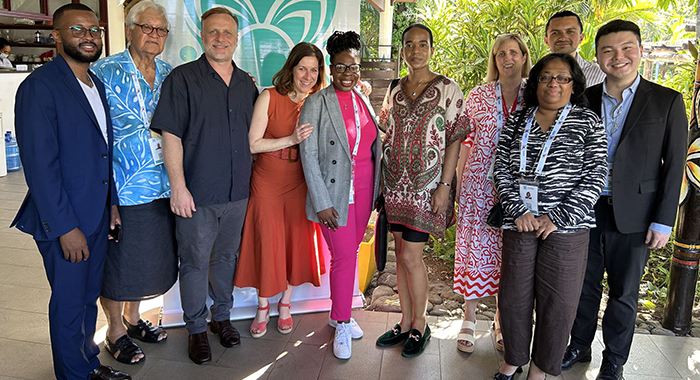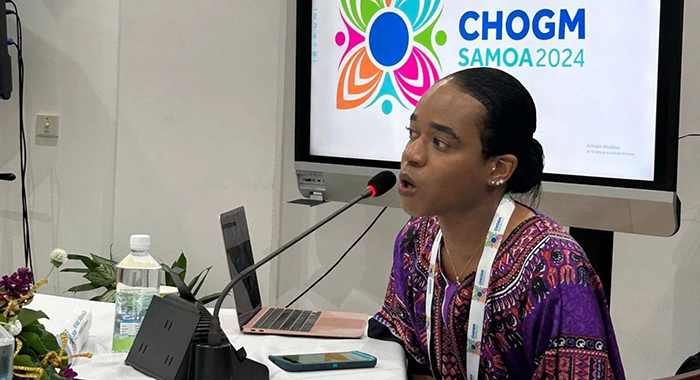Vincentian lawyer, activist, writer, and NGO leader Jeshua Bardoo attended the Commonwealth Heads of Government Meeting (CHOGM) in Samoa his second such meeting from Oct. 21 to 26.
It was the first CHOGM, which is held every two years, to be hosted by a pacific small island developing state.
Bardoo attended CHOGM 2024 on an invitation from the Institute of Commonwealth Studies, which a postgraduate academic institution in the United Kingdom devoted to the study of the Commonwealth.
At this year’s CHOGM, Bardoo participated in two panel discussions surrounding laws criminalising poverty, status, and homelessness.
He advocated for reform and discussed the intersectionality of laws and how they impact vulnerable populations in the independent Anglophone Caribbean and across the entire Commonwealth.

“It was truly an honour to have been invited by the Institute of Commonwealth Studies to attend CHOGM 2024,” Bardoo said.
“I am privileged to continue to get these opportunities where I can meet with powerful and influential people from all over the world and advocate for change.”
He said St. Vincent and the Grenadines and many Commonwealth countries continue to have laws that criminalise poverty, homelessness, and status.
“Many persons impacted by these laws are often already disadvantaged in society and these laws only serve to further criminalise, stigmatise, discriminate, and perpetuate harmful stereotypes against them. Throwing people in jail time is not always the answer. Vulnerable groups need care, support, and protection in order to actualize their fullest potential,” Bardoo said.
“As a society, we have to move on, we have to reform our laws, we have to seek and develop solutions that effectively address the most pressing human rights issues of our time, we need to get rid of harmful British-inspired colonial laws and laws created by regressive governments that do not have any place whatsoever in our modern democracies. We have to be proactive, demand better from our leaders, and be the change that we want to see in society.”
He said he would continue “to use my little voice to speak on, my little pen to write on, and my abilities to take action, on these important human rights issues on the biggest, loudest, and most influential platforms I am given an opportunity to utilise”.






